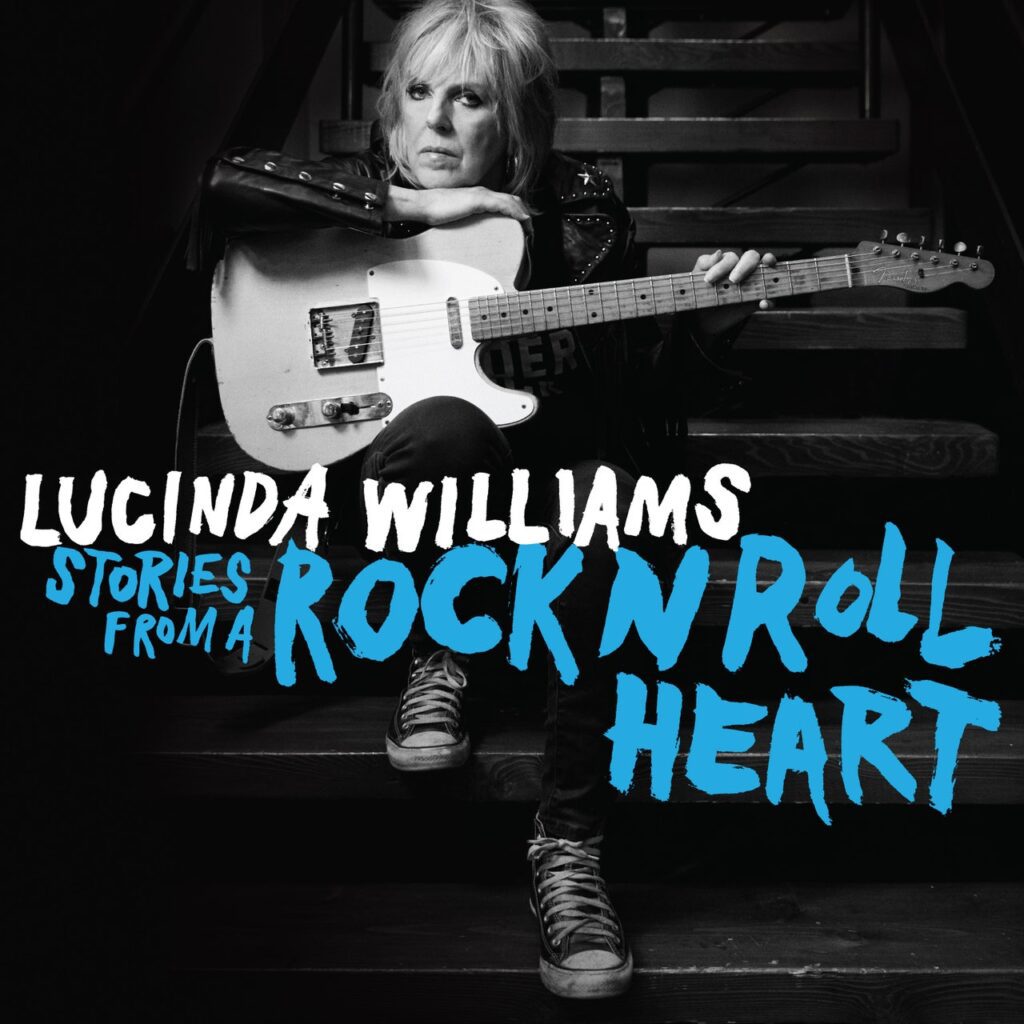The first song on Lucinda Williams’ new record, “Let’s Get the Band Back Together,” is a frail hymn of possibility in the guise of a sweetly silly rocker. The genius of Stories From a Rock N Roll Heart—her first new album in three years and the first since her stroke in 2020—is how she marries these two impulses. Behind her, the band acts like a Tuesday-night bar band: greasy but tame, rowdy but contained, carefully rehearsed but slightly wobbly at the edges. They sound like the kind of outfit that might cover George Thorogood or Bonnie Raitt, the Wallflowers or the Gin Blossoms—whatever keeps the tap dispensing watery beers—and over this groove, Williams reminisces about “staying up all night playing poker and pool/Playing Dylan and the Boss, and we thought we were cool.” There’s a survivor’s wonder in her voice: The fact that there even is a band, this many decades later, to get back together is cause for celebration. Enough hearts are still beating, enough friendships are intact. Hey, we could.
It’s also the lightest music she’s made in a decade. Over the past 10 years, Williams has peered into some darkened corners—depression, addiction, mortality, abuse, despair—and her music has often darkened with her. Perhaps a brush with death refreshes your senses for all the good old slights and discomforts of daily life, because the songs on Stories From a Rock N Roll Heart are earnest and earthbound. She indulges in the luxury to be jealous, self-deprecating, horny. These are also the most quotidian and diaristic songs she’s written in years. “Driving down Sunset/I’m stuck in traffic/With the sun coming in from the west/So I cover my eyes and I wait for the light to change/And I think about you/And it’s kinda strange/but I think about you,” the opening gambit from “Stolen Moments,” is just point-blank more words than Williams generally allows herself. Her songs have worked in brilliant broad strokes—God is a big rotator, there’s a big black train coming, she oughta know about lonely girls—but the writer we meet on Stories From a Rock N Roll Heart is a notebook scribbler, a noticer, an observer.
On “Last Call For the Truth,” she’s also back in the corner booth. “Give me one more taste of my lost youth/Then it’s last call for the truth,” she sings, which reads dire but comes out sounding wry. She’s been singing about lost youth ever since she had it, and now that it’s gone, she sounds fonder than ever. “Celebrating our lack of social graces/Staying true to our ragtag mystique,” she sings, with more than a touch of “2 Kool 2 Be 4 Gotten”—this might even be the same bar, with the same characters, or maybe Williams is the only regular still hanging around from those days. Maybe those are her words notched in that stall.
In order to bring this booze-soaked vision to life, Williams recruited bar-rock legends: Tommy Stinson of the Replacements, Patti Scialfa, and, of course, the Boss himself. Bruce Springsteen’s spirit looms large over the record, lending his background vocals to “New York Comeback” and “Rock N Roll Heart.” The mood on the latter is rousing, and it’s certainly reassuring to hear Springsteen and Williams howl together about a “blue-collar kid in a no-win town,” but Lucinda does Lucinda better than she does Bruce. She’s far more convincing when she snarls “Nothing’s the same as it was back when/You can’t go home again” on “This Is Not My Town,” her voice edged with ambivalence, even contempt. It’s always more personal and sour when she leaves mythology behind for observation.
Even as she’s lost some of her range, Williams’ voice remains sui generis. She’s never sounded more tender or unguarded as she does on “Where the Song Will Find Me,” leaning into her vibrato, letting the holes and pockmarks in her voice tell their own stories. It’s a hymn of helpless devotion to songwriting itself, and maybe the purest love song she’s ever written. As it comes to a close, Williams steps into the spotlight: “I find myself alone in the madding crowd/On the buckling New York streets, people talking loud/Sitting on a stool in the corner of a bar/The errand of a fool has carried me this far/To a place where the song can find me.” The songs—she’s still devoted to them, and they are still visiting her.
All products featured on Pitchfork are independently selected by our editors. However, when you buy something through our retail links, we may earn an affiliate commission.

